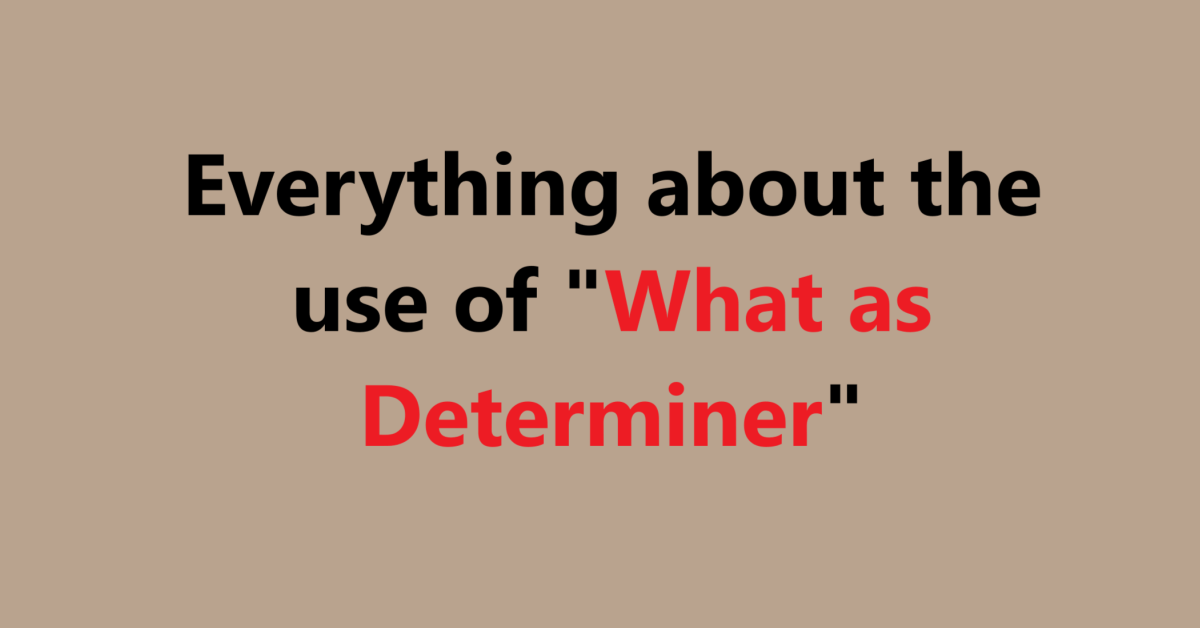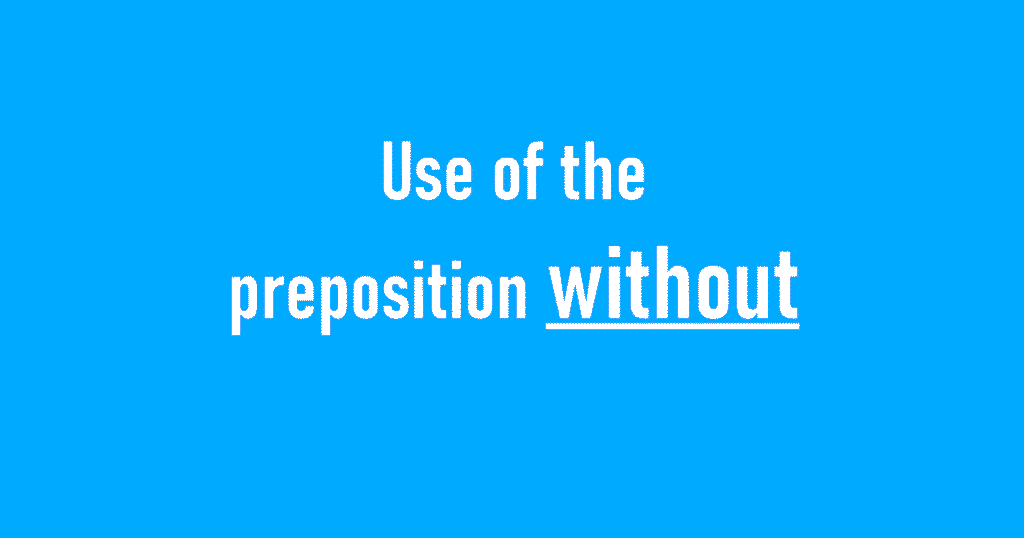Using “what” as a determiner is an important grammatical function in English, where it helps specify nouns in various contexts. Here’s a comprehensive overview:
Definition
A determiner is a word that introduces a noun and provides context, such as quantity, ownership, or specificity. When “what” functions as a determiner, it specifies the noun it precedes by asking for information about it.
Functions of “What” as a Determiner
- Asking About Specific Information
- “What” is used to inquire about a specific item or category within a broader group.
- Examples:
- What book are you reading?
- What job did you apply for?
- Clarifying or Specifying Choices
- It can clarify which item or category someone is referring to within a set of options.
- Examples:
- What flavor of ice cream do you want?
- What type of music do you prefer?
- Expressing Exclamations
- “What” can be used in exclamatory sentences to emphasize the noun it modifies, often reflecting strong emotions.
- Examples:
- What a beautiful day!
- What an incredible performance!
Combinations with Nouns
“When used as a determiner, ‘what’ can be easily combined with different nouns, and the structure remains quite flexible.”
- What + Noun: The most common structure.
- Example: What movie are we watching tonight?
- What + Adjective + Noun: You can also specify using adjectives.
- Example: What interesting ideas you have!
- What + Plural Noun: To inquire about types or varieties.
- Example: What books do you recommend?
Variations in Context
- Formal vs. Informal: The use of “what” can vary based on context. In formal writing, it may be helpful to rephrase to sound more precise or polite.
- Regional Differences: Different English-speaking regions may use “what” in slightly varying ways; however, it’s generally understood universally.
Common Errors
- Omitting the Noun: A common mistake is to use “what” without a following noun, which can lead to confusion.
- Incorrect: What are you doing? (without context).
- Correct: What task are you doing?
- Inversion in Questions: When “what” is used as a determiner in a question, remember the correct order of the subject and verb.
- Example: What game did you play?
Tone and Context
- The tone in which “what” is used can significantly affect its meaning. For example, in an exclamatory context, it can convey surprise or admiration:
- Example: What a surprise to see you here!
Questions and Answers on “What” as a Determiner
Here are 40 questions and answers that illustrate the use of “what” as a determiner:
- Q: What book are you reading right now?
A: I’m reading The Silent Patient. - Q: What color do you prefer for the walls?
A: I prefer a soft blue for the walls. - Q: What city do you want to visit next?
A: I’d love to visit Tokyo next. - Q: What type of cuisine do you enjoy the most?
A: I enjoy Thai cuisine the most. - Q: What kind of music are you listening to?
A: I’m listening to indie folk music. - Q: What job are you applying for?
A: I’m applying for a marketing position. - Q: What flavor of ice cream do you want?
A: I’d like chocolate chip mint. - Q: What size dress do you wear?
A: I usually wear a size medium. - Q: What style of shoes do you prefer?
A: I prefer sneakers for comfort. - Q: What event are you excited about this year?
A: I’m excited about the music festival. - Q: What kind of car do you drive?
A: I drive a hybrid sedan. - Q: What subject is your favorite in school?
A: My favorite subject is history. - Q: What type of exercise do you enjoy?
A: I enjoy yoga and cycling. - Q: What tech device do you use the most?
A: I use my smartphone the most. - Q: What movie genre do you like best?
A: I like action movies the best. - Q: What kind of pet do you have?
A: I have a golden retriever. - Q: What task do you need to complete today?
A: I need to finish a report for work. - Q: What country do you find most fascinating?
A: I find Brazil to be very fascinating. - Q: What article are you writing for your blog?
A: I’m writing an article about travel tips. - Q: What challenge are you currently facing?
A: I’m facing a time management challenge. - Q: What project are you working on at the moment?
A: I’m working on a community development project. - Q: What dish would you recommend at the restaurant?
A: I recommend the grilled salmon. - Q: What time do you usually wake up?
A: I usually wake up at 6 AM. - Q: What accessory do you always wear?
A: I always wear my silver bracelet. - Q: What brand of coffee do you prefer?
A: I prefer Starbucks coffee. - Q: What style of writing do you enjoy?
A: I enjoy creative writing the most. - Q: What skill would you like to learn?
A: I’d like to learn how to play the guitar. - Q: What book series do you enjoy?
A: I enjoy Harry Potter series. - Q: What snack do you crave the most?
A: I often crave potato chips. - Q: What advice would you give a young student?
A: I would advise them to stay curious and ask questions. - Q: What activity do you enjoy doing with friends?
A: I enjoy going hiking with friends. - Q: What lessons have you learned from your experiences?
A: I’ve learned the importance of patience and resilience. - Q: What kitchen appliance do you use daily?
A: I use my coffee maker every day. - Q: What is your dream vacation destination?
A: My dream destination is Bora Bora. - Q: What habit have you recently developed?
A: I’ve recently developed a habit of meditation. - Q: What pet peeve do you have?
A: I can’t stand when people chew loudly. - Q: What type of clothing do you like to wear?
A: I like wearing comfortable, casual clothing. - Q: What is your favorite time of day?
A: My favorite time of day is the evening. - Q: What game do you enjoy playing the most?
A: I enjoy playing board games with family. - Q: What dream do you hope to achieve one day?
A: I hope to achieve the dream of writing a novel.
FAQs about “What” as a Determiner
Here are some frequently asked questions (FAQs) about the use of “what” as a determiner, along with their answers:
- What is “what” when used as a determiner?
- When “what” is used as a determiner, it specifies a noun or asks for information about a particular item or category.
- How do I use “what” as a determiner in a question?
- To use “what” as a determiner in a question, follow it with a noun or noun phrase.
- Example: What book are you reading?
- Can “what” be used in exclamatory sentences?
- Yes, “what” can be used in exclamatory sentences to emphasize the noun and express strong feelings.
- Example: What an amazing experience!
- How can I use “what” to clarify choices?
- “What” can clarify your choices by specifying the noun or category.
- Example: What color do you prefer for the walls?
- Is “what” used differently in formal writing?
- While “what” can be used in both formal and informal contexts, in formal writing, it is often better to be precise and consider rephrasing to sound more polite.
- Example: Instead of “What time is it?” you might say, “Could you please tell me what time it is?”
- What are some common phrases where “what” is used as a determiner?
- Common phrases include:
- What kind of music do you like?
- What style are you thinking of for the project?
- Common phrases include:
- Can “what” be used with plural nouns?
- Yes, “what” can be used with plural nouns to ask about types or categories.
- Example: What exercises do you enjoy?
- Are there specific contexts where “what” may sound rude?
- In some contexts or cultures, directly asking “What do you want?” might sound abrupt. It’s often polite to soften the question, for instance, “What can I help you with?”
- How does tone affect the meaning of “what” as a determiner?
- The tone of voice can indicate different meanings or emotions. For example, “What a lovely day!” conveys excitement, while “What?!” might indicate disbelief.
- How do I avoid mistakes when using “what” as a determiner?
- Ensure that “what” is followed by a noun or noun phrase. Avoid vague usage that lacks context, and be mindful of proper sentence structure in questions.
Conclusion
Using “what” as a determiner is essential for asking questions about specific items or categories and expressing exclamatory emotions. Its grammatical flexibility allows for various combinations and contexts, making it a valuable part of English sentence structure.

